Well, a few days have gone by since Defrag ended, and I always like to let things settle a bit before I have my final say on a conference. This is that post, which also captures some highlights from the rest of the second day’s program.
The "Next-Level Discovery" panel featured an eclectic group, including an IT professor from Berkeley (Marti Hearst), a general manager of Dow Jones Factiva (Lou Paglia), the inventor of Jabber and now working at Wikia on a project to create an open search engine (Jeremie Miller), and the CEO and cofounder of code-search site Krugle (Steve Larsen). 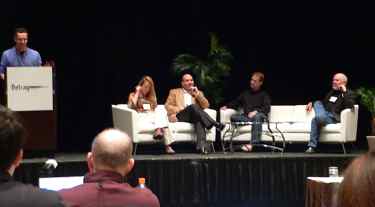
Brad Horowitz of Yahoo was the moderator. Here’s a sampling of what we heard:
Hearst said discovery is about finding things you weren’t expecting to find. But, today, in the enterprise, "people are about search." She said today it’s about navigating, whereas in the future it will be just "saying what you want." Hearst said we’re starting to see the convergence of two trends: massive collections of implicit user behavior, and better handling of longer queries.
Lou Paglia is the GM of the corporate research division at Dow Jones Factiva, which "normalizes thousands of news information sources from around the world for corporate research people." He said that in the enterprise today, Facebook is a way of discovering, as is checking stocks, for example. Jeremie Miller, open source guru that he is, said that, for next-level discovery to happen, we need better connection of independent parties. "The fabric must grow there." Steve Larsen spoke of efforts to make search smarter, and that there are now more than 100 vertical search sites (his company being one example). "These could do to the major search sites what cable TV did to the networks." These vertical search sites are about specific interests of consumers, he said. Because they constrain what one is looking for, you can assume implicit things about them. And you can present results that provide context, the real meaning of discovery." Horowitz said Flickr (a Yahoo property) mines the "interestingness" of people and "reflects that back to the community" — and that this is "better than just explicit things like ratings." There’s value in these implicit behaviors, and it lowers the barriers of participation.
In the discussion period afterwards, Factiva’s Paglia spoke of the "hidden web" and how it’s a big area of need in the corporate world. He said his firm is seeing a change in the paradigm. "How do you get beyond the article? What’s the actual knowledge in the news? What about the data element to help managers make decisions? We want to help people get to where they want to go." Krugle’s Larsen said his company’s code search engine can even link all the way back to the market requirements that caused a given piece of code to be developed. Wikia’s Miller said "the dark web will cease to be known … information wants to be found." Doc Searls asked from the front row, "What about searching old web pages?" Miller said "these are a real treasure, but it’s very hard." Factiva’s Paglia, however, said "we’re getting there." Another audience question was about social search. The panelists noted that one company working in that area, Me.dium, was here, and that Microsoft has such a project. Horowitz said Del.icio.us (also a Yahoo property) is "headed more this way." Esther Dyson asked whether more structure was needed for search. Horowitz said it depends on who’s providing that structure. Larsen said visualization is one way to give search more structure. Paglia asked, "Why should we have to search at all? You should just be able to log onto your CRM and be told what things you need to action on today." Horowitz closed the panel by commenting that "it’s amazing how ossified search results are!" People are locked into a certain look or way that search results are presented to them, but implied this needs to change, to get better.
The Elephant in the Room
A special add to the program, who flew in just for the second day of Defrag, was technologist Kevin Marks of Google. 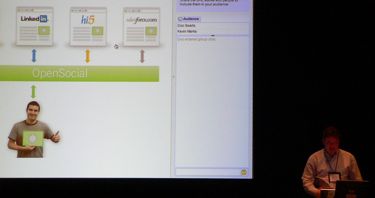
Formerly with Technorati and Apple, Marks said his area of responsibility at his new employer covers basically everything except search and ads. The word was that he came to event in response to one of the impromptu Open Space discussions the previous day, called " Closed Private," which took issue with Google’s new "Open Social" spec — as it might relate to the enterprise, at least. And the word was Kevin showed up to explain his side… 🙂 A great recap of his talk was done by my friend Sean Ammirati — it’s here on Read/Write Web. Also, for those of you into the details, here’s Kevin Mark’s slide presentation. A key thing many people may not be noticing is that two of the already announced partners for Open Social are Oracle and Salesforce.com. So remember this, friends, as Kevin said: "Business is social, too." I say that’s a key takeaway from this event. And I think it’s great that Google chose to show up here. It really speaks to the significance of this first-year gathering called Defrag.
And From Sponsor Yahoo….
Jeremy Zawodny of the Yahoo Developer Network gave an interesting presentation, saying his areas of interest were Open Source, Social Everywhere ("the ‘Net always has been"), Web Services, and Web Platforms. 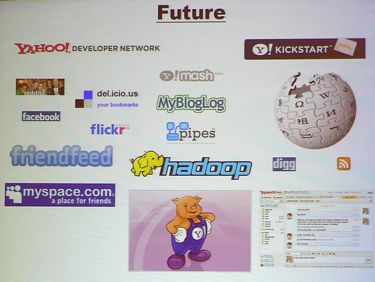
His "Future" slide shows where he’s focused, so I include it here. For more, see Jeremy’s blog.
The Guys With the Money
How could there be a conference without a VC panel? It just can’t happen. But we were very lucky to have partners from arguably three of the most successful firms investing in Web 2.0 technology today: SoftTech VC (Jeff Clavier), Union Square Ventures (Al Wenger), and the Foundry Group (Brad Feld). Here are some highlights:
Feld said there’s a notion now that it only takes $2-3 million in invested capital today to become a profitable business in this space, well below what’s traditionally been the case. Clavier noted that "the $100k you spend today to develop your prototype is like $1 million ten years ago." Wenger reminded us, though, that "if you fall behind after you hit a vein, that’s problematic."
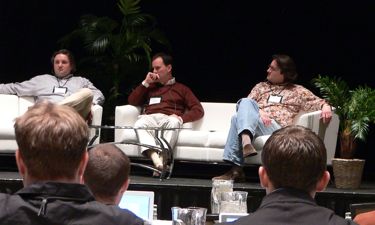
Feld said his first investment as a VC was only $50k (Net Genesis), and the he only invested $100k in Harmonics (which developed Guitar Hero). "A typical seed investment now is $250-500k, where it used to be $5 million," he said. "It’s faster now to get to a proof point." Later, we learned that Clavier really doesn’t invest in "enterprise software" [though one would assume he’s interested in social networking as it applies to business, or why was he at an event that was more enterprise focused?], whereas Feld chimed in that "he loves enterprise software!" He thinks it’s amazing that so many VCs "don’t like it anymore." Consumer-oriented Web 2.0 deals have certainly taken much of the attention away, but a major trend is emerging whereby those technologies are now leading advancements in enterprise productivity. And Feld inserted here his take on that, which I think is a major takeaway from Defrag: "I like what I’m seeing in enterprise IT spending increase projections for 2008 — double digits, maybe 20%," he said. Most VCs want to fit into one or the other category (consumer or enterprise), "but I’ve never been able to separate them." Wenger noted the huge difference in the two is that, in an enterprise business, "you must focus on building a sales team." No small undertaking, to be sure, nor cheap. Feld noted that, of course, very few companies become successful on both sides. His advice to startups: "Don’t overcommit too early which side you’re going to focus on."
As the afternoon’s sessions continued , we heard a very good presentation by Nova Spivack, founder of Radar Networks, called "Towards a Usable Semantic Web". He referred to the "third decade of the Web" as being about "transforming it from a file server to a database." For a selection of his slides, see my Defrag pix on Flickr. Nova’s firm has introduced a new service called Twine, which he says represents the next level in knowledge management — "knowledge networking." Nova defines that term as "social networking + semantic web + collaboration + search."
My Recap of Defrag Version 1.0
This first-year event was great, in nearly every way. In fact, I can’t think of a single thing I’d change when I fill out the comment form — except maybe to publish a list of attendees. [Unfortunately, the sponsor wiki sites were not fully populated with everyone in attendance — which amazed me. Perhaps they were expecting everyone to sign up on their own? They didn’t.] It was really the people attending this event that made it such a rich expertience. That was the key, and I say hooray to the producers for getting so many key players out for this one. At one point, producer Eric Norlin said it was like "getting the band back together" from Esther Dyson’s great PC Forum events, now retired. I mean, when you have people like David Weinberger, Doc Searls, Chris Locke, Esther, Jerry Michalski, and so many other early Internet pioneers in the same room, it can’t help being a thought-provoking experience! I was taken by what Steve Larsen said about the event. He told me: "I was at the first PopTech conference, and I also attended the early PC Forums. This event has the same feel." Steve also pointed me to a blog post about those early days of this core group of Internet and online community pioneers, which gives you a feel for what things were like back then. It’s good to look back, but I also think Defrag made some history of its own on these two days in Denver in late 2007.
As I spoke to Eric Norlin on the second day, I think he and
a colleague really hit on the essence of Defrag #1: "It’s all about
questions, not answers." That really wraps it up as best as anyone can. And I know that I’ll be back again next year for more.
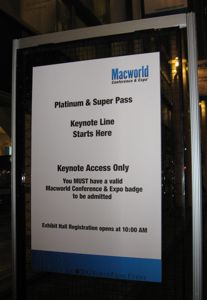
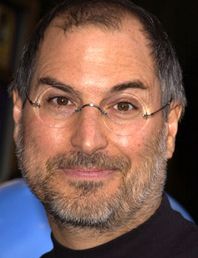
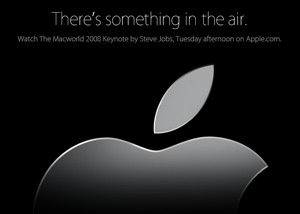

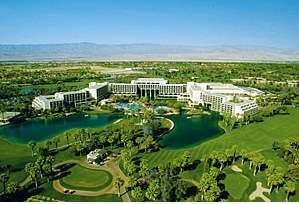 So, yes, January 28-30, I’ll be in Palm Desert, CA, attending the DEMO ’08 conference as a member of the press corps again. And, as part of this prestigious group, I’ve been given the opportunity to offer Tech~Surf~Blog readers a special discount to attend.
So, yes, January 28-30, I’ll be in Palm Desert, CA, attending the DEMO ’08 conference as a member of the press corps again. And, as part of this prestigious group, I’ve been given the opportunity to offer Tech~Surf~Blog readers a special discount to attend. Click
Click 
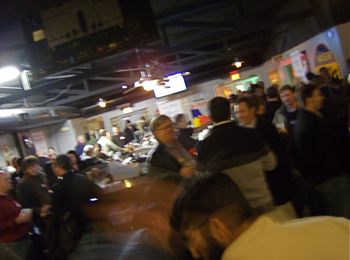 Thursday night, the scene for
Thursday night, the scene for 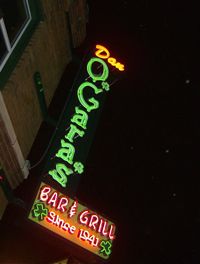
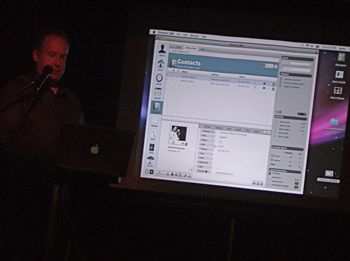 The company officially launches at MacWorld in San Francisco in mid-January, but chose Minnedemo (yay!) as the venue its first public demonstration. Till now, small businesses had to choose a desktop app or a web app, but, said Jensen, “With our hybrid app, we’ve made it possible for the first time to really have the best of both of those worlds.”
The company officially launches at MacWorld in San Francisco in mid-January, but chose Minnedemo (yay!) as the venue its first public demonstration. Till now, small businesses had to choose a desktop app or a web app, but, said Jensen, “With our hybrid app, we’ve made it possible for the first time to really have the best of both of those worlds.” 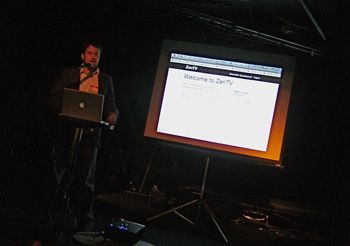 It’s described as a full-featured video transcoding platform that handles every aspect of video processing, from queuing to transcoding to storage. Video transcoding systems are complex and difficult to get right, Dahl said. Zencoder claims its platform is reliable and scalable, costs far less than a custom-built solution, and yet is highly customizable. To be notified when it’s released, enter your email address at the site.
It’s described as a full-featured video transcoding platform that handles every aspect of video processing, from queuing to transcoding to storage. Video transcoding systems are complex and difficult to get right, Dahl said. Zencoder claims its platform is reliable and scalable, costs far less than a custom-built solution, and yet is highly customizable. To be notified when it’s released, enter your email address at the site.




Recent Comments